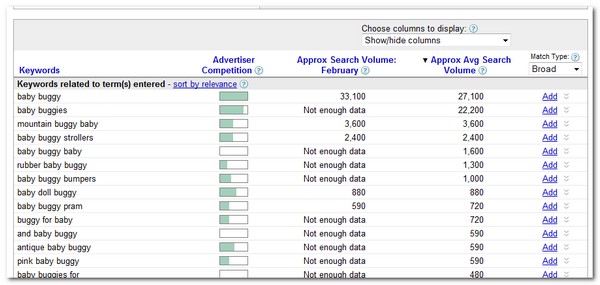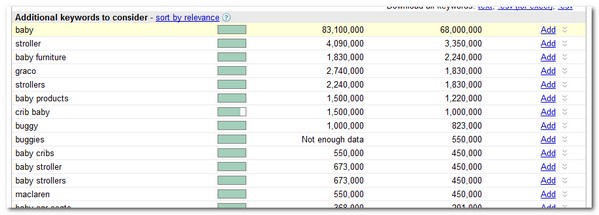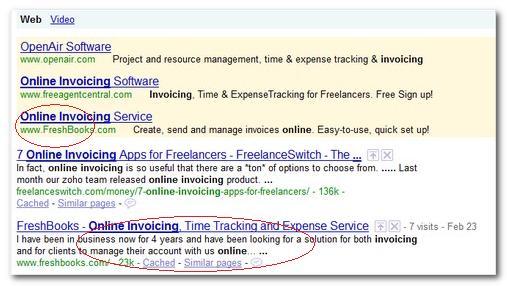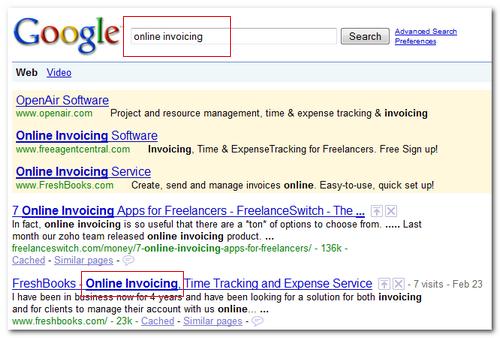In a startup, people usually adopt a variety of roles through sheer necessity. You switch from writing killer code to making the coffee and sweeping the floors. Along with everything else you need to do, you've got to find a way to market your company.
Does your start-up have a plan for SEO?
SEO is a strategy often ignored by startups. However, with millions of searches performed daily, good SEO can drive people to your door for little expense. By working smart, you can achieve marketing results that big companies often struggle to deliver. One of the biggest advantages a start-up has, in terms of SEO, is starting from scratch, thus avoiding many of the legacy issues that affect established sites and brands.
Let's take a look at a cheap and effective SEO strategy geared towards startups.
Background - Why SEO Is Valuable
SEO, like any other form of marketing, is about connecting with an audience.
Unlike PR and other forms of marketing, SEO isn't about affecting change in the mind of the consumer. Search is conservative in that searchers must already be aware of an idea in order to formulate a search query. People cannot search for something of which they aren't already aware.
This notion would seem to run counter to the marketing goals of a startup, as startups often seek to promote new ideas and approaches. However, start-ups often refine services or products that already exist .

For example, QuickBooks produces accounting software. By appearing under keyword terms, such as "accounting", "accounting software", etc, QuickBooks could sell to people who aren't aware of the Quickbooks brand simply by aligning their site with concepts the potential customer is already familiar with, in this case "accounting software". This approach is especially important for start-ups because they usually don't have a great deal of brand awareness.

Check out the Google Keyword Research tool. You'll discover ists of keyword terms your potential customers have used to describe problems they have, and services and goods they wish to find.
Generate a few keyword lists relating to your niche. What phrases are people looking for? What terminology are they using? How many searches are being conducted? This tool can give you a valuable insight into the minds of your customers. The take-away point is that in order to do well in SEO, you should look to orient your site around the terminology already used by your prospective customers.
Here's a specific six step plan for implementing SEO at a startup. We'll cover the high level concepts, and link to technical demonstrations.
1. Nail The Basics
A lot of companies hamper their SEO efforts in the site design phase. Big companies, due to the conflicting requirements of various stakeholders, often compromise SEO efforts by implementing designs that aren't conducive to high rankings.
There are three main areas you need to nail:
- Crawablilty - can the spider crawl and index your site?
- Terminology - are you using the same terminology that your audience is using?
- Remarkability - do people link to your site?
In order to be crawlable, keep the site design and architecture as simple as possible. Search engines like simple. Simple means standard html links, body text, and clear, hierarchically ordered pages. Search engines don't particularly like flash, lengthy URLs, scripting, Flash, Ajax and other whirls and flashes. The closer you are to W3C conventions, the better.
Wikipedia is an example of a search friendly site. This is not to say your site need be encyclopedic and graphically sparse, however you do need to pay particular attention to your internal linking methods, body copy and site architecture. Wikipedia uses a lot of cross links to other content on the site. A good test of crawlability is that the site can be viewed using a text-only browser.
Your site should use terminology your audience uses. We'll look at ways to find this information out shortly.
Your site should be remarkable. You want people to link to you, as links are one of the most important factors in Google's ranking algorithms. Seth Godin talks a lot about about "being remarkable" in his book "The Purple Cow", which is essential reading for any start-up looking to make a mark.
Cows, after you've seen them for a while, are boring. They may be well-bred cows, Six Sigma cows, cows lit by a beautiful light, but they are still boring. A Purple Cow, though: Now, that would really stand out. The essence of the Purple Cow -- the reason it would shine among a crowd of perfectly competent, even undeniably excellent cows -- is that it would be remarkable. Something remarkable is worth talking about, worth paying attention to. Boring stuff quickly becomes invisible
Do you have a strategy to produce content that is worth talking about?
2. Know What Your Audience Is Thinking
Do you know what terminology your audience uses?
If you know this information, you can integrate keywords into your pages, headings and titles, which will improve the likelihood of your results showing up in search results.
Using free tools, such as the Google Keyword Research Tool & the SEO Book Keyword Research Tool, you can gain a valuable insight into the minds of your prospective customers. Here's a video showing how to use them.
The aim is to create lists of keyword terms your audience is already using, and align your site with those keyword streams. Given that most searches are unique, you can create variations on these keyword terms to capture as much traffic as possible.
The Value Of Pre-Testing Keywords
Because search engine optimization can take time to show results, it's often a good idea to test keyword terms using PPC. Once you have a list of prospective keywords, you can set up a PPC campaign, run it for a short period of time, see which keyword terms you had the most and least success with, then use the most successful terms in your SEO campaign.
For example, let's say a fictitious company, CoolBabyBuggies.com is a start up that manufactures a trendy baby buggies. They brainstorm keywords, and comes up with the following list:
baby buggies
strollers
prams
mountain buggy baby
baby jogger
If we put each term into the search tool, we get a lists of potential keyword terms, and the frequency with which they are searched:

If you scroll down to the bottom, you can also see synonyms and related terms:

After such a session, we might end up with a more comprehensive list that looks like this:

Such lists can contain hundreds or thousands of closely related terms, covering the variety of terms people use to describe the same thing.
Next, start a PPC campaign that incorporates these keyword terms.
After a week or so, you'll get an idea of how many people search on each term, and what snippet information they will likely click on. You can use the most successful keyword terms in your SEO campaign. Integrate the most successful terms - successful meaning terms people search on and are closely aligned with the commercial aims of your site - into page titles, headings, and sprinkle them throughout your body copy. Use them as topic starters. Be sure to use semantic variations, too.
If this company really wanted to test the effectiveness of certain terms, they could set up a page that measured a desired action. For example, if they tracked a searcher from the ad click through to a sign-up on an inquiry page or a sales page. Here's a step-by-step guide on how to use analytics.
You then use the most lucrative terms in your SEO campaign.
Of course, if the PPC campaign pays dividends i.e. the cost of running the campaign is less than the return, then by all means keep it going. If you appear in both the PPC and search engine results listings for the same terms you increase the likelihood of getting the click. As you can see from this screenshot, FreshBooks ranks well and advertises under the same keywords, boosting their chances for a click.

3. Seek Attention - And Links
News, by it's very nature, is oriented towards the new and different. "News" is something worth remarking upon.
A startup, by definition, is new, and hopefully different enough from existing services to be remarkable. Your traditional PR efforts - appearing at conferences & demos, press releases, news items, etc - can be leveraged for advantage in the search engines.
Search engines place a lot of emphasis on links, and the keywords contained within those links. Whenever you appear in media, try and get a link back to your site. If you have a name or byline that includes the nature of your service, all the better.
For example," FreshBooks - Online Invoicing". The byline in the link that describes the service, if it appears in a link, will help FreshBooks.com rank for the term "online invoicing". A searcher wouldn't need to know the name of the company, only the nature of the service they provide. So be descriptive, especially in your linking.

4. Make Your Content Remarkable
What type of site do you think has more chance of gaining search engine traffic - a brochure site or a site based on a publishing model?
When fishing, you can catch more fish with a net as opposed to a single line. The same is true for sites in search engines. The more pages you have, the wider your net is cast, and the more search visitors you'll receive. So, consider adopting a publishing model. Think about ways you can regularly publish remarkable information. Ways of doing this include blogs, forums and how-to articles.
Search engines reward fresh, rich content. They're less enamored by the sales pitch of the online brochure. The exception is if the brochure site has very strong inbound linking from external sites. Trouble is, it's difficult to get those links unless the service you offer is truly unique and game changing.
Your content also needs to be unique. Search engines have filters that weed out duplicate content. If you don't have the time to produce content, consider starting forums where users ask questions. If the community thrives, they'll provide fresh content for you.
Is there offline documentation you can incorporate into your web site, such as manuals and case studies? Even if such content doesn't form part of the your main navigation, it's a good idea to include as many pages as possible. Link this content back to your money pages, and be sure to use keywords in the links.
5. Get Outside Help
What networks do you have in place? Who are your suppliers, venture capitalists, customers and other partners? Tap them on the shoulder and ask for links.
Write articles and ask your partners to publish them on their sites, then link those articles back to your site. Leverage any presence they may have to increase your own.
Are you part of a broader movement? Is there a bandwagon you can jump on? Web 2.0 was a marketing term dreamed up by O'Reilly Media to describe a wide range of sites that loosely shared a common approach to web development and collaboration on the web.
In reality, these sites weren't doing anything particularly new of revolutionary, but by defining themselves as part of a revolutionary movement, this group made their marketing job easier. Sites became worth remarking upon simply because they declared themselves part of the Web 2.0 club. Look around to see if you're part of a broader collective, and leverage any newsworthy, and link-worthy, opportunities that come your way as a result.
Another approach for those short of money is to form a co-op. Can you swap services with other companies? When you do so, be sure to write about it and swap links.
Whenever you make connections, think links. Once you get into a habit of regularly producing rich remarkable content, and getting links, rankings will naturally follow.
6. Competitive Intelligence
Who outranks you in your niche?
You can learn a lot about SEO by looking at what your high ranking competitors are going .
Use (mostly) free services like Compete.com for the leading sites in your niche. What approach are they using? How often are they publishing? What type of content are they publishing? What does their external link structure look like?
You can reverse-engineer your competitors SEO strategies using the SEOBook Toolbar. Aaron explains how to use it in the video.

One area to focus on is the inbound links your competitors have gained from external sites. If you can get links from the same sources, you'll be able to compete with them on keyword terms. You also might discover some alliances and customers you might not know they had.


